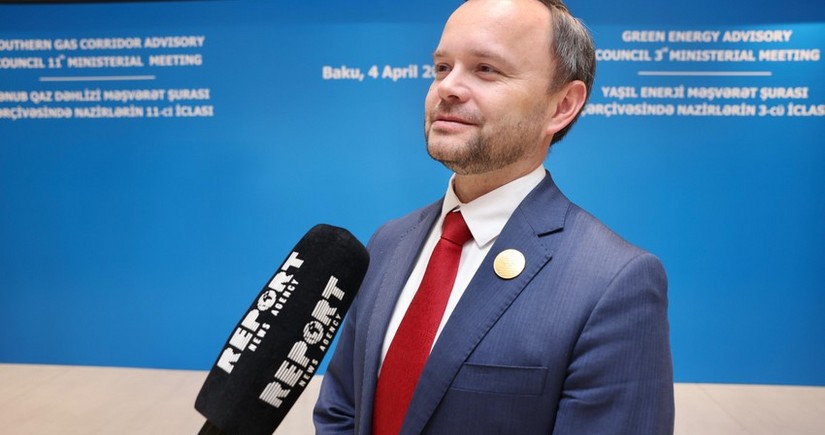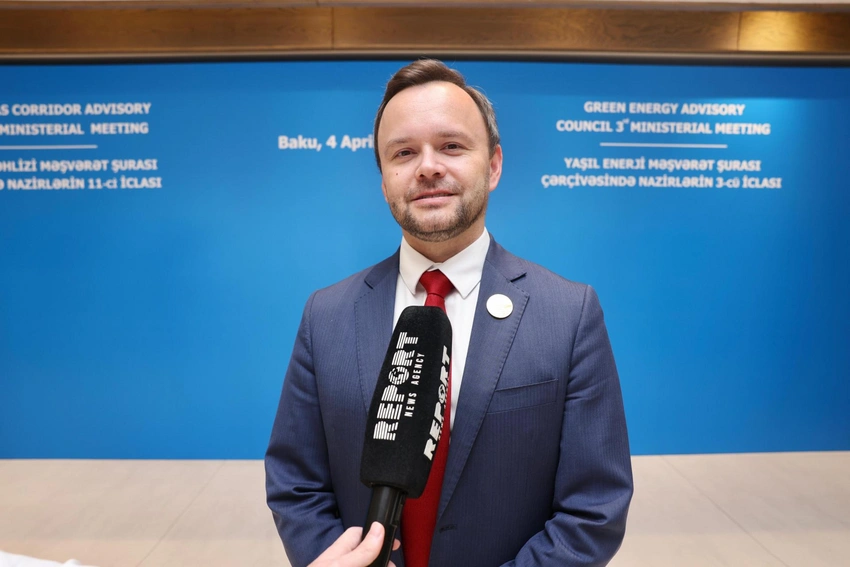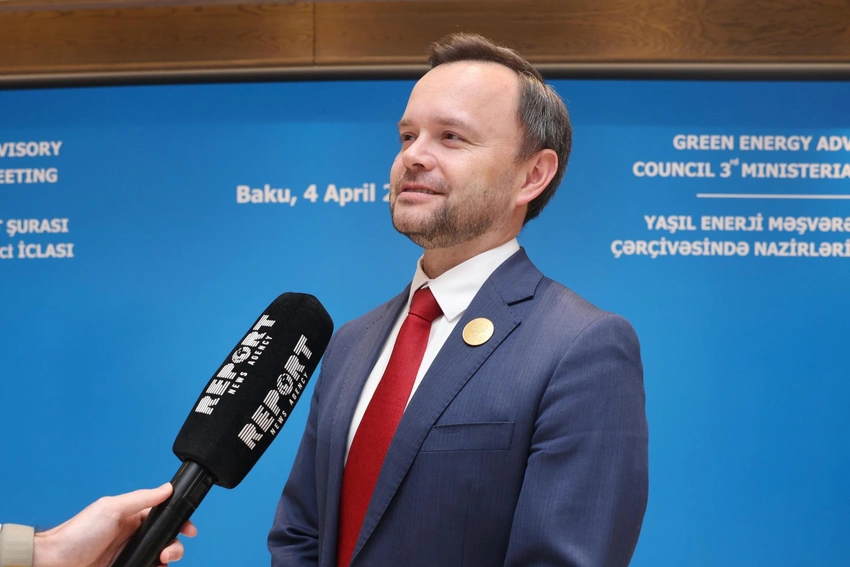Petr Binhack: Czech Republic sees Azerbaijan as vital link in gas supply diversification – INTERVIEW
- 30 May, 2025
- 12:55

Azerbaijan holds a prominent place in Europe's energy strategy, serving as a vital partner in ensuring energy security and diversifying supply routes. The Czech Republic, in alignment with the EU’s broader goals for a green transition and sustainable development, is actively working to deepen bilateral cooperation with Baku—ranging from traditional hydrocarbon imports to joint initiatives in renewable energy, energy efficiency, and decarbonization.
In an interview with Report, Petr Binhack, Deputy Director General of the Energy Section at the Czech Ministry of Industry and Trade, outlined Prague's priorities in its energy dialogue with Azerbaijan, investment prospects in green technologies, and the strategic importance of the Southern Gas Corridor for regional stability.
- Azerbaijan has traditionally been an exporter of oil and gas. How does the Czech Republic envision further cooperation in the fossil fuel sector? Is there an interest in increasing imports of Azerbaijani energy resources?
- Azerbaijan has long been a reliable and important supplier of oil to the Czech Republic, and we greatly value this established partnership based on mutual trust and strategic interests. The Czech Republic remains committed to maintaining this cooperation, which has proven essential for our energy security. In the past, discussions have taken place between MERO, the Czech pipeline operator, and SOCAR, exploring the possibility of alternative crude oil transport routes to Druzhba pipeline.
While the Czech Republic is steadily moving toward a more diversified and sustainable energy mix, fossil fuels—particularly oil—will continue to be an important component in decades to come. As such, there is ongoing interest in securing and potentially increasing energy imports from Azerbaijan. However, the realization of alternative supply routes will ultimately depend on the broader geopolitical context and the stability of transit regions.

- How does the Czech Republic evaluate Azerbaijan’s potential in the development of renewable energy? In which areas are Czech companies willing to participate-project development, engineering, or equipment manufacturing?
The Czech Republic sees Azerbaijan as a promising partner in the development of renewable energy, particularly given its efforts to diversify its energy mix and reduce reliance on fossil fuels. Azerbaijan's favourable natural conditions for solar, wind and hydropower, along with its government’s strategy to increase the share of renewables to 30% of electricity production by 2030, are positively received by Czech stakeholders. The improving legal framework and openness to foreign investment further strengthen the country’s appeal for Czech involvement.
- How does the Czech Republic assess Azerbaijan’s role in ensuring Europe’s energy security? Are long-term contracts or new supply mechanisms being considered?
- The Czech Republic views Azerbaijan as an important and strategic partner in enhancing Europe’s energy security which we confirmed during the Southern Gas Corridor meeting this year. While the Czech gas market is currently supplied primarily through LNG terminals in the Northern Sea and pipeline gas from Norway, Azerbaijan is seen as having strong potential to contribute to further diversification of energy sources and supply routes. This diversification is a key element in strengthening the EU's overall energy resilience. With regard to long-term contracts, it is becoming obvious that major investments in both extraction and infrastructure necessary to strengthen Europe´s energy security, requires predictability.
- How actively does the Czech Republic engage with Azerbaijan in the context of Europe’s “green transition”? Are there specific initiatives aimed at reducing the carbon footprint and introducing environmentally friendly technologies?
- The Czech Republic actively engages with Azerbaijan in advancing Europe's green transition through cooperation on several strategic levels that encompasses renewable energy development, energy efficiency, and green technologies. In 2021, both nations signed an energy cooperation agreement that extends beyond traditional oil and gas sectors to include renewable energy sources. The agreement also emphasizes collaboration on energy efficiency and conservation in residential areas and large industrial enterprises. It outlines plans for mutual exchanges of information, joint training programs, seminars, and the establishment of a Joint Working Group to oversee energy cooperation initiatives. Further discussions in April 2024 between the foreign ministers of the two countries explored the potential for cooperation in green and renewable energy sectors. The Czech Republic's involvement in COP29, hosted by Azerbaijan, underscores its commitment to the green transition.

In April 2025, the Czech Republic co-hosted the international conference “Innovative Pathways to a Green Future: Sustainable Energy and Emission Reduction” at ADA University in Baku. Organized in collaboration with the Hungarian Embassy and ADA University's Institute for Development and Diplomacy, the event brought together government officials, diplomats, energy experts, and private sector representatives. Discussions focused on green technologies, energy transition, and emissions reduction. The conference also featured participation from Czech companies, emphasizing practical contributions to sustainable energy initiatives.
